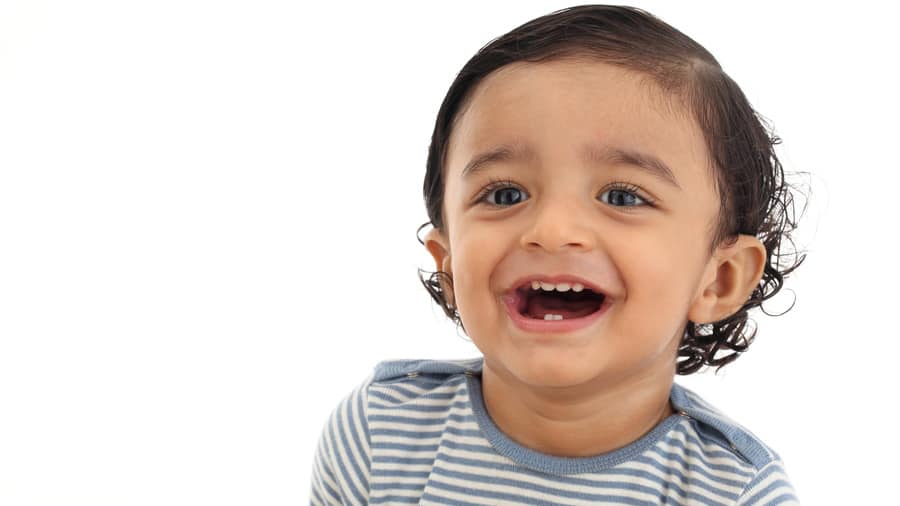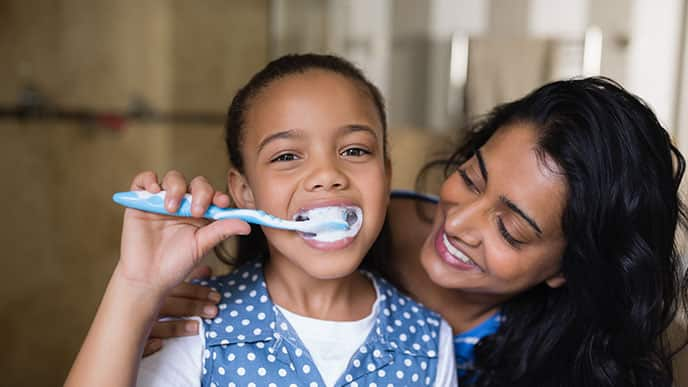-
-

TEETH WHITENING
What Is Stannous Fluoride Toothpaste?Stannous fluoride toothpaste helps prevent cavities, reduce sensitivity, fight plaque, and support daily gum and enamel health.

Selecting Dental Products
Best Toothpaste in India: Five Dentist-Recommended TypesToothpastes today are formulated to meet your every dental need and come in many flavours. Have your dental professional suggest the best toothpaste in India.
-
Science & Innovation
- ORAL HEALTH CHECK
- PRODUCT MATCH
- Colgate® | Toothpaste, Toothbrushes & Oral Care Resources
- Oral Health
- Infant & Kids Oral Care 101
- How to Prevent Toddler Tooth Decay


In the midst of first steps, potty training and new words, toddlers undergo plenty of developments that are sure to keep their parents excited and busy. So it's not surprising that parents sometimes forget to be proactive about preventing toddler tooth decay. Your toddler can start to develop tooth decay as soon as their first tooth surfaces, a milestone that occurs at around six months of age. Read on for some tips and advice on how to keep your child's new teeth clean and healthy.
Daily Tooth Care
Indian Dental Association recommends that until you are comfortable that your child can brush on their own, continue to brush your child's teeth twice a day with a child-size toothbrush and a pea-sized amount of fluoride toothpaste. After they turn two, you can upgrade to brushing their baby teeth with a bit of fluoride toothpaste. Don't forget about flossing, which you can start doing as soon as they have two teeth that touch each other.
Regular Dental Visits
Your child's first dental appointment should occur no later than their first birthday. Thereafter, you should schedule regular appointments every six months, unless your dentist recommends otherwise. Why are dentist visits so important for toddlers? Consider the fact that before the age of three, most children grow their full set of baby teeth. It's vital to bring your child to the dentist during this time period so the dentist can determine your child's risk for cavities, look for signs of decay and discuss how certain habits, such as thumb sucking and pacifier use, could affect your child's oral health.
Eating and Drinking Habits
While it may be tempting to give your toddler a bottle of milk or juice to help them fall asleep at bedtime or nap time, this common practice can be harmful. According to Indian Dental Association the risk of tooth decay appears as soon as your child is around six months old. This process of decay in infants and toddlers is referred as ‘Baby Bottle Tooth Decay’, which usually occurs in the upper front teeth. IDA also recommends not to use pacifiers dipped in honey, sugar, juice or sweetened drinks as that can lead to tooth decay. If your toddler has already become accustomed to these behaviors, start filling their bottle or cup with water instead of juice or milk.
This article is intended to promote understanding of and knowledge about general oral health topics. It is not intended to be a substitute for professional advice, diagnosis or treatment. Always seek the advice of your dentist or other qualified healthcare provider with any questions you may have regarding a medical condition or treatment.
ORAL HEALTH QUIZ
What's behind your smile?
Take our Oral Health assessment to get the most from your oral care routine
2.3 billion
people worldwide suffer from tooth decay
ORAL HEALTH QUIZ
What's behind your smile?
Take our Oral Health assessment to get the most from your oral care routine
2.3 billion
people worldwide suffer from tooth decay
Related Products

Helping dental professionals
More professionals across the world trust Colgate. Find resources, products, and information to give your patients a healthier future






.jpg)



